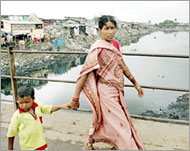World Bank malaria work under fire
Experts battling malaria have accused the World Bank of reneging on promises to help fund the fight against the disease in a Lancet column.

The World Bank disputed many of the issues raised in the opinion piece in the online version of the British medical journal, The Lancet.
Though the bank acknowledges its malaria programmes have been understaffed and underfunded in the past, its officials insisted it has learned from its mistakes and has moved to set things right.
Malaria kills more than one million people a year, many of them young children in Africa – even though it is both preventable and treatable. As much as 40% of the world’s population are at risk, mostly in the globe’s poorest countries, the World Health Organisation said.
The 12 experts who signed the Lancet piece written by immunologist Amir Attaran charged that the bank failed to honour a pledge made in 2000 offering between $300 million and$500 million in loans to fight malaria in Africa.
Data falsified
The experts also said the World Bank claimed success against the disease by falsifying data and approved clinically obsolete treatments for a potentially deadly form of malaria – charges the institution hotly denies.
“The bank failed to lend Africa the funds for malaria control that it said it would, and rather than admit this with candour, the bank concealed the fact by using untransparent and contradictory accounting,” wrote Attaran, who also is a lawyer at the Institute of Population Health at Canada’s University of Ottawa.
 |
|
Malaria has made a comeback in |
The others supporting Attaran’s piece include doctors and researchers at the University of Oxford, the London School of Hygiene and Tropical Medicine, and the Prince Leopold Institute of Tropical Medicine in Antwerp, Belgium.
In a response published alongside Attaran’s op-ed, bank officials argued it had placed between $100 million to $150 million into malaria efforts from 2000-2005, but added it was difficult to track specific projects. It stressed it would try harder to do so in the future.
More important, officials insisted that the Attaran piece was “old news” when it comes to the bank’s work on malaria in Africa.
The bank said in The Lancet that it has a commitment of as much as $1billion worldwide with other partners in the next five years – with as much as half directed at Africa alone.
New programme
A new programme – in place for one year – will commit as much as $190 million to malaria programmes by the end of June of this year, subject to approval by the bank’s board, said Suprotik Basu, a public health specialist who deals with malaria issues in the Africa region at the World Bank.
The bank has also dedicated more personnel to the issue, Basu said. While last year it had no one dedicated to the disease, now at least 40 people are working on malaria-related projects.
“We’ve managed in a year’s time to turn around a relatively large ship,” Basu said. “The bank is beginning to live up to what it could do for malaria-fighting in Africa.”